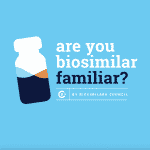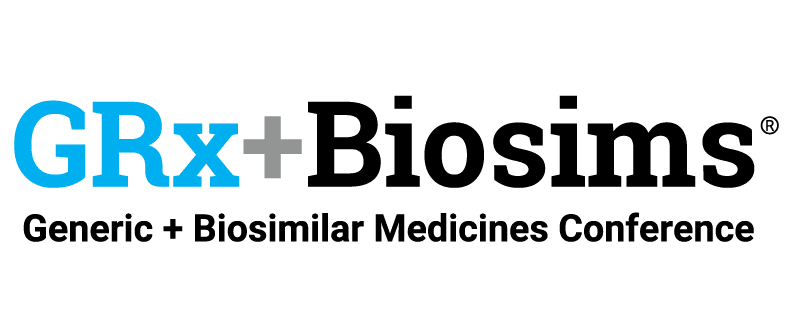Biosimilars Bulletin | July 2022
As we write this, the Senate is actively considering the Inflation Reduction Act, which includes provisions that would enable the federal government to “negotiate,” and in effect, set prices for drugs in the Medicare program. Not only would this negatively affect biosimilar development, but it would also harm the employers and patients who rely on savings from biosimilars.
Throughout July, the Biosimilars Council and AAM redoubled efforts to educate lawmakers about biosimilars’ savings and the potential for greater savings than “negotiation,” as well as the significant downsides of the proposal. In particular, patients with commercial insurance would face higher prices as the bill’s provisions reduce or eliminate the number of biosimilars available to patients.
Right now, you can use our action center to contact your elected officials and share your perspective on how the Inflation Reduction Act would increase costs and reduce options for care. Regardless of the outcome, we will continue our efforts to increase patient access to biosimilars, and ask that you stay in touch and involved in the weeks and months ahead.
News & Updates
The High Cost Of The Inflation Reduction Act
Price controls create a substantial risk that investors will be unable to recoup their capital costs if they invest in the development of biosimilars. Other alternative investment opportunities will look relatively more attractive, depriving biosimilar developers of the resources they need. The result will be less competition and higher prices.
Drug Pricing Deal Disrupts Development of New Cures
Another sad irony of this proposal is that it would harm lower cost generic and biosimilar companies as much – if not more – than the higher priced brand-name pharmaceutical companies. They too would be victims to the air of uncertainty created by these negotiations.
Drug Price Negotiation Proposals Undermine Current Bipartisan Approaches to Lower Drug Spending
Congress is actively seeking to advance legislation to allow the Medicare program to “negotiate” the prices of brand drugs. However, these proposals neglect to consider the impact on the development of lower-cost generic and biosimilar medicines. These safe and equally efficacious medicines continue to offer lower costs and increased access to care, but the drug price negotiation proposals would actively harm millions of patients by rewarding brand drug manufacturers with a perpetual monopoly in many instances.
Biosimilar Adoption: Patient and Provider Considerations
Prescription drug expenditures accounted for $577 billion in 2021.1 A significant portion of the spending is attributable to biologic agents, which are different from traditional small-molecule pharmacological agents. With the burgeoning costs associated with biologics, payers have responded with utilization management strategies. Although these have added value, there is an opportunity for further cost savings resulting from increased biosimilar availability and adoption.
The Fattest ‘Skinny’ Spending Bill Ever
More than 40 biosimilars are on track to launch in coming years, and they are expected to yield more than $130 billion in savings for patients and government. This makes the $200 billion or so in Medicare savings that Democrats are claiming an accounting mirage.
A Biosimilar Adoption Program Saved a US Nonprofit Health System $29.6M in 2 Years
A recent article described strategic medication utilization management program initiatives undertaken by Providence St. Joseph Health, a large US non-profit health system, to increase biosimilar uptake and cut costs. The first 2 years of the program created $26.9 million in cost savings and “biosimilar adoption rates that greatly exceed the US national average.”
Promoting Biosimilar Uptake Requires a Well-Brewed Approach
Would it be useful for advanced practitioners (APs) to compare the development of biosimilars to the making of a copycat beer? Yes, say investigators, if the purpose is to find context outside of medical jargon to convince patients that biosimilars are every bit as safe and efficacious as reference biologics.
Featured Resources

Guest Blog: The Biosimilars Council Launches a New Educational Resource for Patients
Today, many patients are confronted with high costs to access their medicines, which sometimes forces them to choose between their physical and financial health. Thankfully, biosimilar medicines may help patients avoid these tough decisions. The Biosimilars Council launched the Biosimilars Patient Resource Center to answer patient questions about these important, lower-cost treatment options. Of course, patients should always consult with their doctor about their medications.

Switching from One Biosimilar to Another Biosimilar of the Same Reference Biologic: A Systematic Review of Studies
Within the limitations of this systematic review, available data suggests that biosimilar-to-biosimilar switching is a safe and effective clinical practice, although it is not covered by current health authority regulations or guidance. No reduction in effectiveness or increase in adverse events was detected in biosimilar-to-biosimilar switching studies conducted to date.

Are you #BiosimilarFamiliar?
This series of short educational videos use a word game to educate a variety of audiences about biosimilar terms. These materials can support your organization’s efforts as you work to increase awareness about biosimilars.
Events
FDA Workshop: Increasing the Efficiency of Biosimilar Development Programs
The virtual workshop will focus on comparative clinical studies associated with biosimilar development programs and will discuss possible innovative ideas that have the potential to streamline and improve the efficiency of biosimilar development. The workshop will include presentations and panel discussions by FDA staff as well as external subject matter experts in the area of biostatistics. Learn More.
IGBA—MOPI Conference 2022
The conference will provide a great opportunity for participants from the Global, and especially Southeast Asian, off-patent pharmaceutical sector to finally meet again in-person. It will offer a unique chance to address the challenges highlighted by the pandemic as well as the strength and value of this industry. It will also address the local and international policies needed for generic, biosimilar and value-added medicines to become central to global healthcare. Learn More.
GRx+Biosims 2022
GRx+Biosims 2022 is the premier scientific and regulatory event for the U.S. generics and biosimilars industries featuring timely programming relevant to technical, regulatory, policy professionals. Top officials and subject matter experts share their knowledge and best practices to enhance attendees’ understanding of how to succeed in generic and biosimilar development, regulatory process and approvals, and the evolving policy landscape. Learn more.
Global Biosimilars Week 2022
The International Generics and Biosimilars Medicines Association (IGBA) is hosting its third annual Global Biosimilars Week. This event raises awareness of the powerful impact of biosimilar medicines and provide key resources for advocates and interested parties. This year’s theme is, “Strengthening Healthcare – the Value of Biosimilar Medicines.” Learn More and download the social toolkit.
Access! 2023 – AAM Annual Meeting
Save the Date! Meet the leaders and decision-makers who are shaping the future of generics and biosimilars. Be inspired by new experiences, real talk and fresh ideas during a period of intense challenges and exciting promise. Join generic and biosimilar industry professionals at Access! 2023. Learn more.
Want to hear directly from Executive Director Craig Burton?
Follow him on LinkedIn
Interested in joining the Biosimilars Council?
Contact Jewel Smith (jewel.smith@accessiblemeds.
